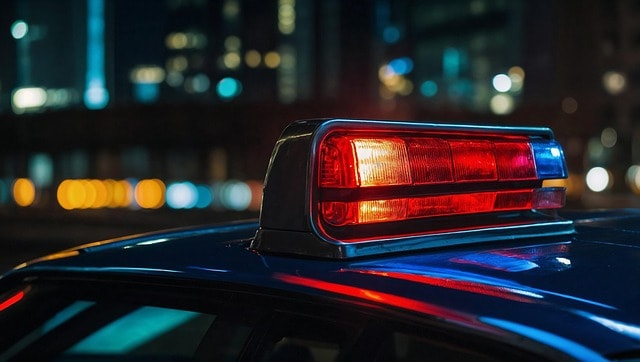How Police Use GPS Tracking
How Police Use GPS For Personal and Vehicle Tracking

From suspect apprehension to internal vehicle tracking and beyond
To improve performance and reduce expenses, many police departments have adopted the use of GPS trackers for asset tracking, surveillance, and other purposes. Law enforcement agencies use these devices for monitoring vehicles, often requiring a warrant to ensure legal compliance.
Using these devices for vehicle tracking provides police departments with real-time information and helps them operate more effectively; however, some privacy issues surrounding GPS use by police could open up a legal can of worms for law enforcement officers who don’t follow appropriate procedures. Let’s take a closer look at the various ways police departments use GPS for personal use and vehicle tracking and examine the benefits and possible issues associated with this practice.
Using GPS to Manage a Police Force
There are multiple ways that police can make use of GPS technology in their day-to-day work. GPS units in patrol cars can help a police department provide better service to their local community. The GPS data can identify which police vehicle is closest to a crime scene and ensure those police officers stay within their assigned zone. Reliable tracking is crucial for effective monitoring and response times. This type of vehicle tracking can also be helpful if a police officer ever goes missing on the job.
A GPS unit can provide directions and up-to-date traffic information, helping police officers get to the scene of a crime or emergency sooner. Although some officers balk at the prospect of their activity being monitored by their superiors, the benefits of this technology outweigh those possible objections.
Using GPS to Locate Criminals and Gather Evidence
Not only are GPS trackers useful in police cars, but they can also be used as weapons in the fight against crime. Police officers can affix a GPS tracker for a car to a target vehicle (sometimes called a slap-and-track operation); with this device in place, it’s easy to monitor every move a suspect makes. GPS devices allow a degree of long-term surveillance that would normally be impossible to conduct without being detected. In some states, police use GPS in an innovative new technique for chasing suspects:
A cannon attached to the grill of the police vehicle shoots “bullets” that are adhesive GPS units. These units stick to the back of the car being chased. Once this occurs, the police car can slow down and avoid the accidents that are occasionally associated with car chases.
Police officers sometimes use GPS devices for purposes that don’t involve tracking vehicles. For example, GPS units can track suspicious cargo, providing valuable evidence for the prosecution. GPS data can also help lead police to stolen or missing vehicles. Additionally, a tracking system can be discreetly installed in various locations on a car, enhancing covert vehicle monitoring for law enforcement.
A vehicle tracker offers advanced features and benefits for law enforcement. For instance, it can be discreetly placed inside the wheel well for weather protection and provides real-time updates, making it easier to monitor suspect vehicles.
Using GPS for Paroled Inmates
Some police departments provide prison inmates with a GPS bracelet before released on parole. Officers enter a list of coordinates into a system to represent places that the paroled inmates can visit. If a parolee goes somewhere that isn't on the list of coordinates, officers are alerted to the breach of parole terms. This practice makes it easy for law enforcement authorities to keep track of paroled inmates without the physical presence of a parole officer.
Legal Issues for Law Enforcement Agencies
have risen out of the use of GPS trackers in law enforcement. In the case of United States v. Katzin, the U.S. Court of Appeals held that a police officer must obtain a warrant before attaching a GPS unit to a suspect's vehicle. The reasoning behind this decision is that the installation of a GPS device for vehicle tracking is equivalent to a search, so Fourth Amendment protections against "unreasonable searches" must be taken.
Privacy rights also play a part in this controversy: While it's important that police officers have the best possible tools to locate and apprehend criminals, most individuals consider their cars to be a haven of personal privacy.
The objection many police officers have with this ruling is that it's not always easy to obtain a warrant. Police must demonstrate "probable cause" to believe that a crime has occurred or is currently occurring. Unfortunately, GPS tracking is often most valuable in the earliest stages of a police investigation, long before the probable cause can be readily established.
As you can see, using GPS locators for vehicle tracking can help police departments do their job more efficiently and effectively. Recent legal decisions have made it clear that the installation of GPS tracking devices is subject to the protection of the Fourth Amendment, so law-enforcement officers need to take the appropriate precautions and obtain a warrant before using GPS devices for certain purposes.
Despite the possible legal issues surrounding their use, GPS trackers offer an effective way for police departments to manage their own force, gather evidence, and apprehend criminals.
Check Legal cases here.
Posted by Kellie Kendall on Mar 24th 2025

